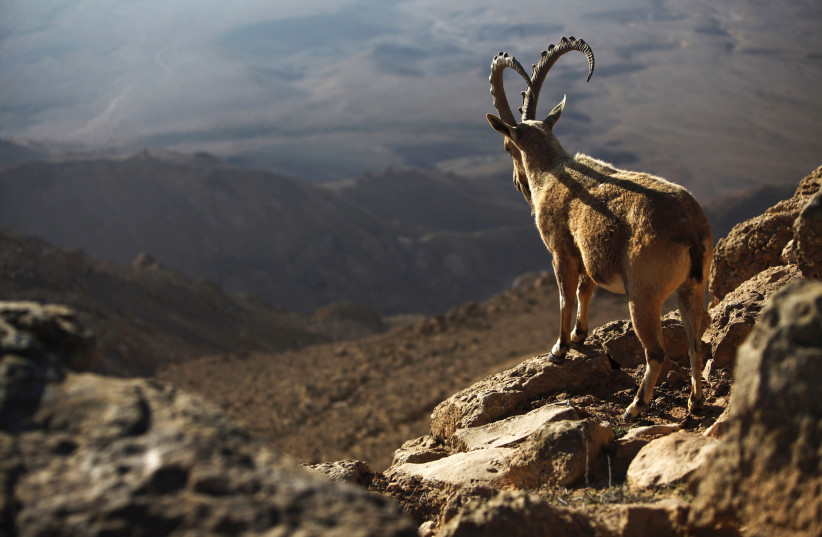Nicole Hod Stroh can’t recall experiencing any antisemitism, only curiosity about Jews, in the predominantly Catholic Colombian city of Cali – perhaps best known for its infamous drug cartel in the early 1990s – or in Bogotá, where her family moved when she was 12, as Cali’s small Jewish community was slowly fading out.
“Overall, life was good. There was a small but thriving Jewish community, fully integrated into Colombian society" she says.
 Learn how to buy your home in Israel with confidence
Learn how to buy your home in Israel with confidence“When I finished high school at 17, I moved to Spain and studied journalism for a year. Living alone in a completely different continent at such a young age had a profound impact on shaping my worldview, as I was exposed to so many new cultures and perspectives.”
She transferred to New York University, where she studied political science and international relations, then worked for two years for United Jewish Communities, now called the Jewish Federations of North America.

“That gave me a good perspective of the entire Jewish philanthropic system,” she says.
Transforming the Negev
TODAY, NICOLE is CEO of the Merage Foundation Israel, a private philanthropy established by David and Laura Merage in 1998 to initiate and advance transformational programs in the areas of Negev development, aliyah, and social resilience.
She and her American Israeli husband, Asaf Hod, spent their first five years of married life in Bogotá, where their twin girls were born.
“I felt that even though professionally I was in a great place, working for an organization whose mission was to lift millions out of poverty through social impact projects, Bogotá wasn’t where I saw a future for my kids; it was becoming more unstable,” Nicole says.
“My parents also felt they wanted to make aliyah, and in 2009 we all decided to try it for a year, with a lot of hopes. The work I had done in New York and in Colombia made me feel I had a lot to give professionally to Israel. I started looking for job opportunities around social impact, to be part of that vibe of nation building.”
Her first job was at the Lakiya Negev Weaving Project, a grassroots Bedouin women’s organization. During her three years at Lakiya, “they exposed me to this other side of Israel that had never been discussed in my school in Colombia, and added to my understanding of the complexity of Israel.”
In 2010, the Hods welcomed a third daughter. In 2018, the family went to Cambridge, Massachusetts, after Nicole won a Wexner Fellowship. There, she earned a master’s degree at Harvard Kennedy School.
Upon their return to their Ra’anana home in 2019, she began working for Merage.
Among the projects she helped found are the DeserTech initiative; Synergy7 tech hub; and the Negev Winery Consortium.
“Merage sees the Negev as the future of Israel. Israel will not be able to continue growing if it ignores 60% of its territory, and we have the potential to be a world hub of desert innovation, since we have a huge influx of expertise in water management and agriculture.
“But to be a magnet for young, talented, educated people, we need to create high-quality jobs and clusters of employment,” she explains. “A lot of our programs are public-private partnerships. We look at both systemic and strategic projects.”
DeserTech is creating an ecosystem of companies and start-ups in renewable energy, desert agriculture, and water technologies, geared to turning Beersheba and the Negev region into a global entrepreneurial hub for these technologies.
“We recently won an Israel Innovation Authority tender to create a new DeserTech and Climate Innovation Center in the Negev. Last year, we won another IIA tender to create the Synergy7 tech labs hub with Dell, Elbit, Ben-Gurion University, and Soroka Medical Center,” says Nicole, who chairs both projects.
The Negev Winery Consortium is another initiative to create jobs via small businesses and tourism. With luxury hotels such as Beresheet in Mitzpe Ramon, Kedma in Sde Boker, and Six Senses in Shaharut, the Negev has additional potential for high-end tourism. Bringing together the “amazing up-and-coming desert winemakers” of the Negev into a cohesive group – Merage even brought them to Italy “to see the power of a wine region economically and socially” – is a promising way to attract upscale tourists.
“We also have many other programs that promote the cohesion and prosperity of Israeli society,” says Nicole.
“For example, we have a project for young immigrants from all over the world started 19 years ago with the Jewish Agency, called Wings.”
Merage also runs Pakal, which has so far transformed 200 army reservist units into cohesive communities aimed at giving everyone a sense of meaning and belonging.
Since Oct. 7, the foundation has also taken on projects for the economic rehabilitation of the Negev, says Nicole.
How does she do it all? “The key is recognizing good opportunities and jumping on them and putting the right person in place to manage them. I’m good at catalyzing,” she says.
Throughout her professional life in New York, Colombia, and Israel, she adds, “I’ve been lucky to be surrounded by amazing mentors – people who guided me, believed in me, and helped me believe in myself, such as David Merage.”
Living in Israel has an extra bonus, imbuing her life with “a sense of meaning every single day.”
“Here, life is not about just doing your job and shopping at Cosco and getting coffee at Starbucks. Way beyond your individual responsibility, you have a responsibility for everyone because we are under constant existential threat.”
Israel has enabled her and her husband to raise strong girls, she says. “Israel is a wonderful place for women to feel empowered, where they can lead and be in positions of power and impact.”~ ■
NICOLE HOD STROH, 43 FROM COLOMBIA TO RA’ANANA, 2009
 Sign up for our newsletter to learn more
Sign up for our newsletter to learn more 